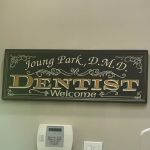1. Understanding Persistent Bad Breath After Dental Treatment
Causes of persistent bad breath after dental treatment can be confusing for patients who expect freshness following a cleaning, filling, or other procedure. While temporary changes in breath are common, ongoing halitosis may indicate deeper issues. To effectively address this problem, it’s important to understand both dental and non-dental factors at play.
2. Oral Hygiene Factors
2.1 Residual bacteria and plaque
Even after dental treatment, bacteria may remain in areas that are hard to clean, such as gum pockets or between teeth. If brushing and flossing habits are not thorough, these bacteria release sulfur compounds, causing unpleasant odors.
2.2 Impact of dental restorations
Improperly fitted crowns, fillings, or bridges can trap food particles, making it easier for bacteria to thrive. Patients who notice bad breath shortly after getting dental work should ask their dentist to check the integrity of the restoration.
3. Healing and Post-Treatment Effects
3.1 Wound healing odor
When gums or oral tissues are healing after procedures such as extractions or deep cleaning, it’s normal to experience a temporary odor. This is usually due to tissue recovery and the presence of blood clotting in the area.
3.2 Dry mouth after anesthesia
Some dental treatments or medications reduce saliva flow. Since saliva naturally cleanses the mouth, reduced flow allows bacteria to accumulate, leading to persistent odor until moisture levels return to normal.
4. Underlying Medical Conditions
Persistent halitosis is not always about the teeth. Sinus infections, acid reflux, and even diabetes can affect oral odor. For example, patients with untreated GERD often report a sour or foul breath that persists despite proper oral care.
5. Lifestyle Influences on Breath
5.1 Smoking and alcohol use
Tobacco and alcohol both dry out the mouth and introduce strong odors that linger. Even after dental treatment, these habits can mask improvements and perpetuate bad breath.
5.2 Diet choices
Onions, garlic, and high-protein diets are well-known contributors to halitosis. Combined with post-treatment sensitivity or reduced cleaning effectiveness, food-related odors can persist longer than expected.
6. Real Stories and Patient Experiences
One patient shared an experience of undergoing a root canal only to find their breath worsened. The culprit was an incomplete seal in the filling that trapped food. Once corrected, the problem resolved quickly. Stories like this highlight the importance of follow-ups and open communication with dentists.
At Family Dentistry Online, many patients have successfully overcome these issues by combining professional treatment adjustments with improved home care routines.
7. Solutions and Professional Guidance
Consistent brushing, tongue scraping, and the use of antibacterial rinses are crucial for managing post-treatment bad breath. Patients should schedule regular checkups to ensure that restorations are properly fitted and that no infections are developing.
8. Finding Trusted Dental Support
When persistent bad breath continues despite proper oral care, it’s time to consult a professional. Reliable dental providers such as Family Dentistry Online offer comprehensive evaluations that uncover hidden causes and provide tailored solutions. Having a trusted source of support not only resolves immediate discomfort but also helps maintain long-term oral health.







 Coast Dental4.0 (514 review)
Coast Dental4.0 (514 review) Ryan L. Lindner, DDS0.0 (0 review)
Ryan L. Lindner, DDS0.0 (0 review) Park Family and Cosmetic Dentistry5.0 (51 review)
Park Family and Cosmetic Dentistry5.0 (51 review) Pediatric Dentistry of Cape Coral4.0 (178 review)
Pediatric Dentistry of Cape Coral4.0 (178 review) Sylmar Dental & Braces5.0 (111 review)
Sylmar Dental & Braces5.0 (111 review) Mohn Family Dental4.0 (43 review)
Mohn Family Dental4.0 (43 review) The Importance of Oral Health Education During Pregnancy for a Healthy Pregnancy
The Importance of Oral Health Education During Pregnancy for a Healthy Pregnancy Best Tips for Brushing Your Teeth Properly for Healthy Gums: Essential Techniques for Oral Health
Best Tips for Brushing Your Teeth Properly for Healthy Gums: Essential Techniques for Oral Health Why Skipping Dental Checkups Can Lead to Bigger Oral Health Problems
Why Skipping Dental Checkups Can Lead to Bigger Oral Health Problems Advantages of Porcelain Dental Restorations
Advantages of Porcelain Dental Restorations How Can Diabetes Cause Tooth and Gum Problems? Preventing and Managing Oral Health Issues
How Can Diabetes Cause Tooth and Gum Problems? Preventing and Managing Oral Health Issues Healthy Habits for Promoting Good Oral Health and Hygiene: Tips for a Healthy Smile
Healthy Habits for Promoting Good Oral Health and Hygiene: Tips for a Healthy Smile